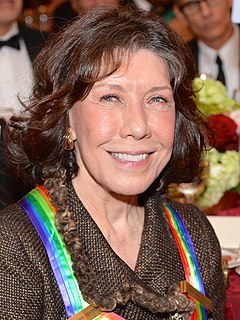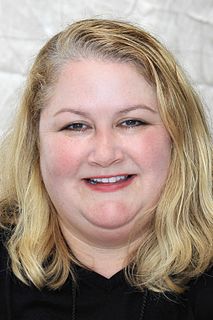A Quote by Richard Dawkins
If we want to know where the truth lies in particular cases, we have to
look.
Related Quotes
Knowing can be a curse on a person's life. I'd traded in a pack of lies for a pack of truth, and I didn't know which one was heavier. Which one took the most strength to carry around? It was a ridiculous question, though, because once you know the truth, you can't ever go back and pick up your suitcase of lies. Heavier or not, the truth is yours now.
I found that most people don't really want to know the truth. There are plenty of people who want to know the truth on their terms or require that the truth be contained within certain boundaries of comfort. But truth can never be known this way. You have to seek truth from a place of not knowing, and that can be a very threatening place because we think we already know the truth or we are afraid of what the truth might be.
It is not given to man to know the whole Truth. His duty lies in living up to the truth as he sees it, and in doing so, to resort to the purest means, i.e., to non-violence. God alone knows absolute truth. Therefore, I have often said, Truth is God. It follows that man, a finite being, cannot know absolute truth. Nobody in this world possesses absolute truth. This is God's attribute alone. Relative truth is all we know. Therefore, we can only follow the truth as we see it. Such pursuit of truth cannot lead anyone astray.
History has got a lot to do with unique circumstances under certain particular cases and grand theories will always find counter cases. I don't think that people whose expertise lies in one thing should try to make grand theories about something (a) where it's very hard to get the evidence to prove that you're right and (b) where it's much too easy to make up stories that seem right.
If you want to know who God is, look at Jesus. If you want to know what it means to be human, look at Jesus. If you want to know what love is, look at Jesus. If you want to know what grief is, look at Jesus. And go on looking until you’re not just a spectator, but you’re actually part of the drama which has him as the central character.
Don't lies eventually lead to the truth? And don't all my stories, true or false, tend toward the same conclusion? Don't they all have the same meaning? So what does it matter whether they are true or false if, in both cases, they are significant of what I have been and what I am? Sometimes it is easier to see clearly into the liar than into the man who tells the truth. Truth, like light, blinds. Falsehood, on the contrary, is a beautiful twilight that enhances every object.
Lies 1: There is only the present and nothing to remember. Lies 2: Time is a straight line. Lies 3: The difference between the past and the futures is that one has happened while the other has not. Lies 4: We can only be in one place at a time. Lies 5: Any proposition that contains the word 'finite' (the world, the universe, experience, ourselves...) Lies 6: Reality as something which can be agreed upon. Lies 7: Reality is truth.





































